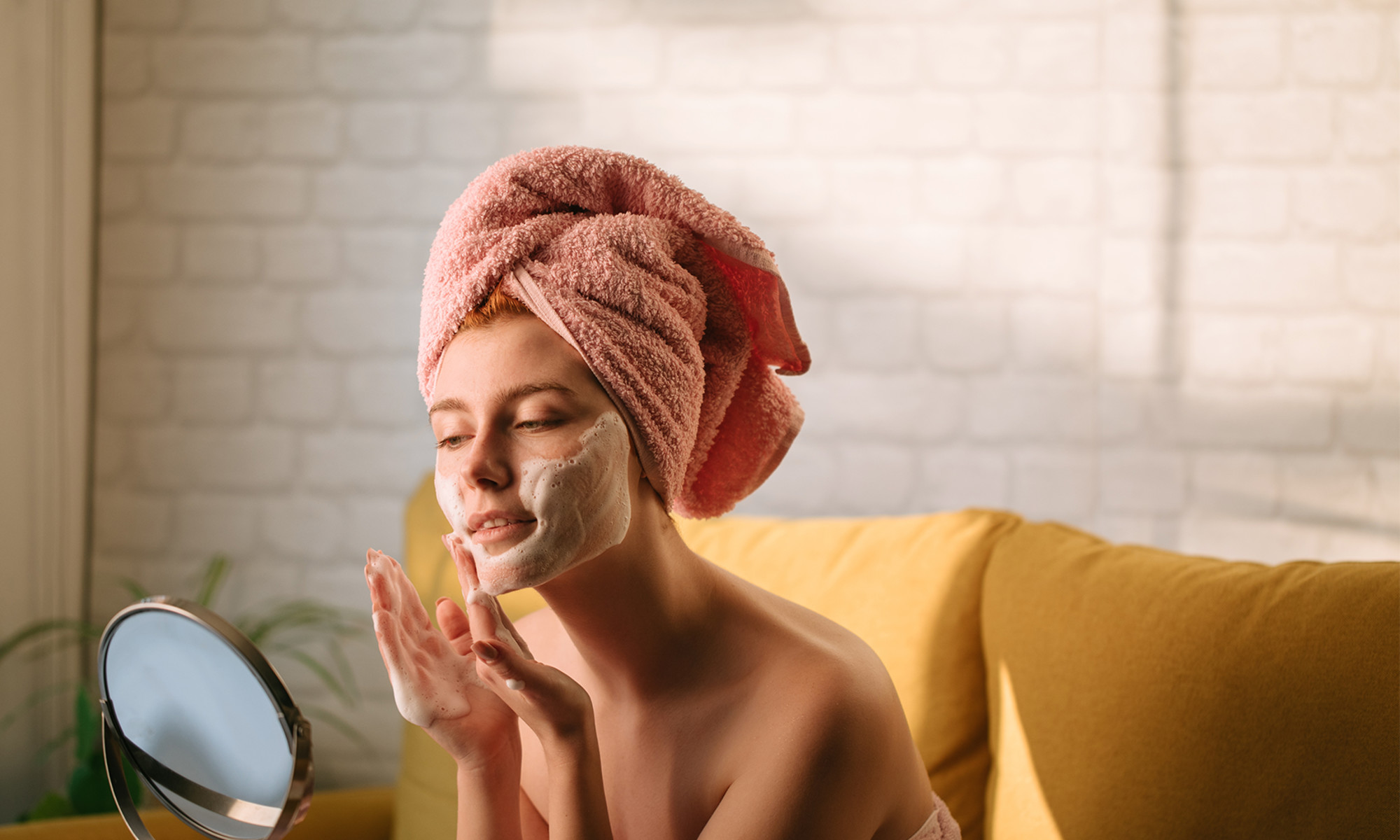Is This The Secret To Securing Firmer Skin For Longer?
Channeling my inner finance girl.

Advertisement
This ad is displayed using third party content and we do not control its accessibility features.

Former Senior Beauty & Lifestyle Editor
Former Senior Beauty & Lifestyle Editor
Jamie Schneider is the former Senior Beauty Editor at mindbodygreen. She has a B.A. in Organizational Studies and English from the University of Michigan, and her work has appeared in Coveteur, The Chill Times, and Wyld Skincare.
Image by Ani Dimi / Stocksy July 09, 2024 We carefully vet all products and services featured on mindbodygreen using our Our selections are never influenced by the commissions earned from our links. Collagen is the key to firm, tight, supple skin. Treat yours like it is literally gold—because it really is that valuable for youthful-looking skin. And as with any precious asset, you'll want to multiply your investment. Enter collagen banking, or the concept of stimulating more collagen now so your body can use more of it later. The extra collagen support can keep signs of skin aging (fine lines, crepiness, and the like) from cropping up earlier than you'd like. Think of it like a collagen savings account! How's that for a finance crash course? Find a few ways to boost your collagen levels below. It's never a bad idea to start saving… 1. One of the best things you can do for your natural collagen reserves is to add even more fuel to the tank. Yes, collagen supplements do work: You just have to find an effective, clinically backed formula—namely, one with hydrolyzed collagen peptides. We suggest hopping on the bandwagon on the early side, since you lose 1% of collagen per year starting in your mid-20s. Start investing now with these expert-backed collagen supplements. One study even found that patients receiving red light therapy on their face twice a week for 30 total sessions experienced improved skin complexion7, skin tone, skin smoothness, and collagen density (as measured with an ultrasonographic test). "Some theories suggest that red light therapy may reduce damaged collagen in the skin from traumatic injury or UV damage altering the balance to make way for new collagen production to occur," board-certified dermatologist Erum Ilyas, M.D., MBE, FAAD, told mbg about the technology. The thing is, there are plenty of knockoffs in the skin care space. To make sure you have a quality collagen-promoting device, look for clinical studies, a stamp of FDA approval, and, ideally, praise from derms and estheticians. 3. If you're not protecting your body's precious collagen, all the high-quality supplements and high-tech devices in the world just won't help. This is because UV rays contribute oxidative stress in the skin9, which affects skin at the cellular level and leads to photoaging. All the more reason to invest in a daily sunscreen and practice smart sun care habits (read: no sunbathing for sport). Antioxidants can fend off free radicals that lead to oxidative stress, thus further protecting skin from photoaging. One of the most famous players for collagen support is vitamin C, which protects the collagen you already have by working against collagen-degrading enzymes10. "Vitamin C is a key cofactor in the synthesis of collagen and elastin, [which help] give your skin that plump and youthful appearance," adds Keira Barr, M.D., dual board-certified dermatologist and mindbodygreen Collective member. That's why some star collagen supplements include vitamin C in their formulas—but you can slather on the antioxidant topically, too. Here, find our favorite serums.
Take collagen supplements
Protect with SPF & antioxidants
The takeaway
I'm no accounting whiz, but the idea of preparing my collagen before it dwindles sounds like a solid plan.
Ideally, you'd start in your mid-20s (the tipping point when your collagen starts to diminish), but anyone can use these tips to delay the inevitable decline. That said, here are some collagen-restoring tips to replenish your levels.

 Aliver
Aliver 



























.jpg&h=630&w=1200&q=100&v=f776164e2b&c=1)




